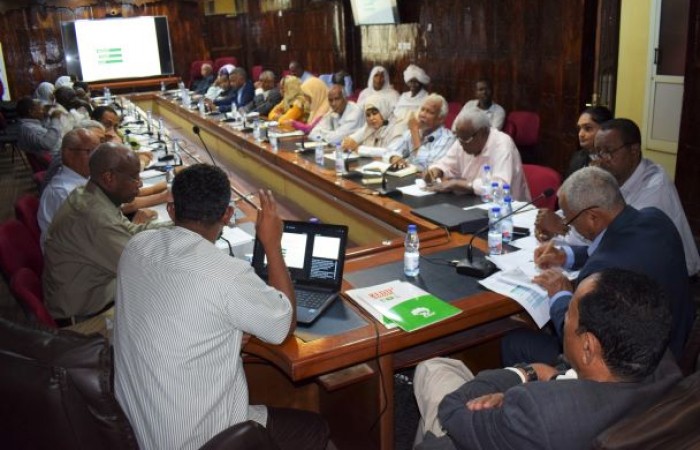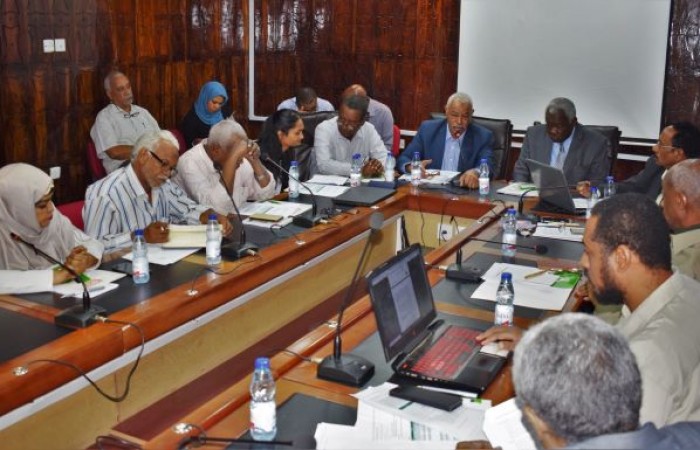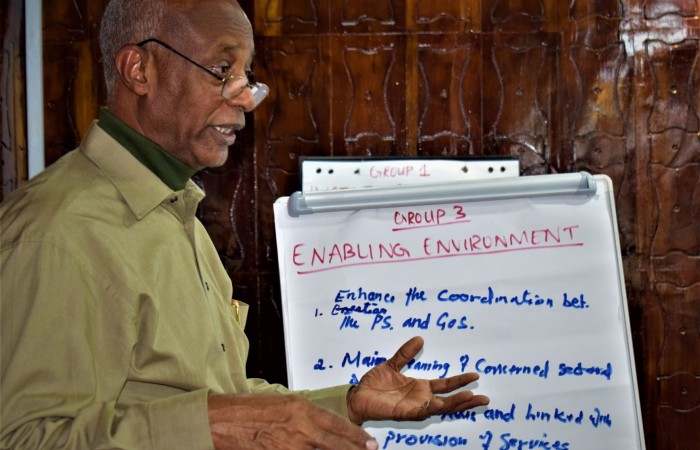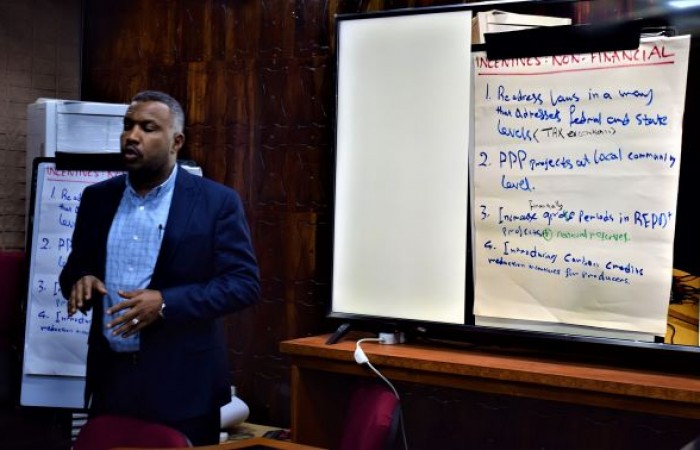A workshop entitled ‘Private Sector Engagement in REDD+ Processes for Sudan’s REDD+ Program’ was organized in 18 December 2019 by the REDD+ PMU
An overall objective of the Workshop: This workshop was intended as a validation workshop for the study of "Private Sector Engagement in REDD+ Processes for Sudan’s REDD+ Programme" undertaken under the REDD+ Sudan
The specific objectives of the workshop were as follows:
- Sharing the study and its results with the project stakeholders;
- Validation of the study;
- Providing a platform for the discussion of private sector engagement in REDD+ processes for Sudan’s REDD+ program issues;
- Soliciting and generating recommendations that are likely to help the REDD + Project to engage the Sudanese private sector in the REDD+ processes in Sudan.
Participants : The Workshop was attended by 46 persons ; out of whom 60.9% were males and 39.1% were females comprise participants from the different bodies and a wide spectrum of representation including staff of Forests National Corporation (FNC); Educational Institutions; Private sector (Industry, Commerce; Banks), Related Ministries (Ministries of Agriculture and Natural Resources, Minerals, Oil and Gas, Range Administration; Department of Wildlife); SESA; Remote Sensing Authority (RSA); World Bank (WB) and Gum Arabic Producers’ Association.
The Presentation: The study was presented by the Consultant Miss. Renuka Srinivasan on behalf of UNIQUE Forestry and Land use, highlighting the potential role of the Sudanese private sector engagement in REDD+ processes for Sudan REDD+ Programme.
Reflection from the workshop participants
- a) No mention was given concerning the methodology of the study.
- b) Land tenure is a major problem in the R o S. This situation is not encouraging for the private sector. A good alternative for the private sector is to work jointly with the FNC, as there is no problem of land tenure.
- c) The new forest policy encourages investment in forestry; private sector can establish joint projects with the FNC.
- d) Taungya system, which was recommended by the study, has been adopted by the FNC since long ago. The system allocates reserved deforested areas to local community members to plant agricultural crops along with forest trees. After success of the tree planting the farmers leave the area to new areas allotted to them by the forestry authorities.
- e) The 22nd. Forestry Congress held by the FNC in Khartoum in 2017 emphasized the role that private sector can play in afforestation activities, especially in urban forestry (e.g. the Golf field in Khartoum State).
- f) Some participants mentioned that Khartoum State is not one of the hot spot areas. Hotspot areas have already been determined in previous REDD+ studies.
- g) Unlike other investment areas, no one has tried to prepare a feasibility study in the field of forestry.
- h) Additional energy alternatives can be proposed in addition to what was mentioned about LPG and improved stoves. Solar energy and wind energy can be good alternatives.
- i) The private sector can invest in bio-gas, as the raw material is available everywhere. Local communities can be trained to produce their own bio-gas. This will reduce the pressure on the forest areas and save hard currency through reducing LPG export
- j) Encourage local communities through appropriate technology: tapping tools for Gum production and developing tools suitable to other non-wood producing trees and shrubs. Private sector can be encouraged to invest in planting non-wood producing trees as a base for some forest industries.
- k) There is need to establish forestry-private sector discussions to make the private sector acquainted with investment opportunities in forestry.
- l) There are some opportunities which were not noted in the consultancy, e.g. pulp and paper industry, production of volatile oils, etc. These and others might be attractive to the private sector.
- m) All developmental projects should include the environmental impact of the project and compensation should be made in the form of tree planting among other compensations
 English
English العربية
العربية 











